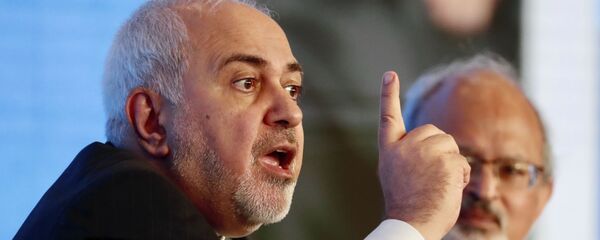Any US military attack against Iran, even one that begins as a tactical one, threatens to spiral into a full-scale war, Hossein Dehghan, Iran’s former defence minister-turned adviser to Supreme Leader Ayatollah Ali Khamenei has said.
“A limited, tactical conflict can turn into a full-fledged war. Definitely, the United States, the region and the world cannot stand such a comprehensive crisis,” the retired Air Force brigadier-general said in an interview with AP published Thursday.
“We don’t welcome a crisis. We don’t welcome war. We are not after starting a war,” Dehghan stressed. “But we are not after negotiations for the sake of negotiations either,” he added.
His comments follow reports by US media “citing current and former US officials” earlier this week alleging that Donald Trump had considered a limited attack on Iran’s “main nuclear site,” in “the coming weeks,” with advisers including Vice-President Mike Pence, Secretary of State Mike Pompeo, acting Defence Secretary Christopher Miller and Joint Chiefs Chairman Mark Milley reportedly stepping in to talk him out of the idea amid fears of escalation.
Iranian officials responded to the reports, with government spokesman Ali Rabiei warning that “any action against the Iranian nation would certainly face a crushing response,” and Iran’s United Nations mission spokesman Alireza Miryousefi said that the country has “proved to be capable of using its legitimate military might to prevent or respond to any sorry adventure from any aggressor.”
Iran has proven to be capable of using its legitimate military might to prevent or respond to any melancholy adventure from any aggressor. Trump's withdrawal from #JCPOA & his cruel sanctions have not changed the peaceful nature of Iran’s peaceful program. https://t.co/zxwTnHODFr
— Alireza Miryousefi (@miryousefi) November 17, 2020
In his interview, Dehghan, a possible candidate in Iran’s 2021 presidential elections, also touched on other aspects of Iran’s defence policy, stressing that Tehran “will not negotiate its defence power…with anybody under any circumstances,” including so far as its missile capabilities are concerned. “Missiles are a symbol of the massive potential that is in our experts, young people and industrial centers,” he suggested.
In the immediate wake of the US drone strike, Dehghan publicly hinted that Iran’s response to Soleimani’s killing would include attacks on US “military sites.” He added at the time that Iran was seeking retaliation, not war.
The Khamenei adviser has also called the US an all-out “terrorist state” over Soleimani’s assassination, recalling the commander’s role in fighting the Taliban* in Afghanistan, Daesh (ISIS)* in Iraq and Syria, and “the Zionist regime” in Lebanon and the Palestinian territories. He has also accused Trump of being a “criminal”, and said Iran would “never engage in negotiations” so long as he remains in office.
The US began a partial withdrawal from Iraq in March 2020, after the country’s parliament passed a resolution to expel US forces from the country and amid threats from Baghdad- and Tehran-allied Shia militias. In September, the Pentagon announced that it would reduce troop numbers in Iraq from 5,200 to 3,000. This week, US media reported that acting Defence Secretary Miller would reduce troops by about 500 more personnel before the end of Trump’s first (and possibly final) term in office.
* Terrorist groups outlawed in Russia and many other countries.





